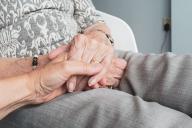depression
Pandemic Depression Hit Hard: A New Study
Living through a historic pandemic and coping with the challenges of the first year of college led to clinical depression in one-third of students, double the percentage seen in previous years. Even though some people tend to be genetically protected from depression, they weren't ready for this case.
Kate Yakimchuk research mental health genetics Psychology 16 December 2023Psychologist Explanation: What is Postoperative Depression
Postoperative depression is the body's reaction to changes occurring.
Diana Dashkevich health mental health sadness psychologist tips Psychology 12 December 2023A molecule that blocks bad memories: A new study
Depression is a widespread mental illness, and current treatments don't always meet everyone's needs. Scientists at the City University of Hong Kong discovered a tiny molecule that can help mice with stress-induced depression symptoms by preventing the formation of unpleasant memories.
Kate Yakimchuk research mental health depression treatments Psychology 29 November 2023Good to Know: Non-Obvious Signs of Depression
Masked depression (hidden, somatized, “depression without depression”) is depression in which the actual symptoms of low mood are hidden (masked) by some somatic symptoms or other mental disorders.
Diana Dashkevich health mental health self care Psychology 28 November 2023Pet's mental issues: Keep your pets healthy
Not only humans, but also their pets can have mental issues sometimes. Your cat or dog can't say that it's sad or anxious, but its behavior and body language can highlight that something goes wrong.
Kate Yakimchuk pets anxiety health Animals 19 November 2023Researching treatment-resistant depression: A new study
Modern science knows that genes can play a huge role in many psychological and mental conditions, including depression. A team of scientists researched the genes that might be involved in treatment-resistant depression.
Kate Yakimchuk research meds brain Psychology 19 November 2023SAD signs: Psychologist's insights
When the weather becomes cold and gloomy, lots of people start to experience depression-like symptoms. In many cases, it's Seasonal Affective Disorder, also known as SAD, and it can be quite hard to cope with.
Kate Yakimchuk seasons health signs Psychology 18 November 2023Antidepressants minimize negative memories: A new study
Depression can make you remember all the bad things that have happened to you, making it even harder to cope with stress. Meanwhile, antidepressants can actually make these memories go away - so it can help you in many ways.
Kate Yakimchuk research antidepressants memory Psychology 13 November 2023Seasons that make depression more intense: Psychologist's insights
Fall and winter are often called gloomy and depressive, and it's actually true - these seasons can actually make some people's depression worse. While these seasons can also be amazingly beautiful, this beauty can't compensate for the lack of sunlight and cold weather.
Kate Yakimchuk fall winter mood Psychology 12 November 2023Sleep and wake as treatments: A new study on teens' depression
Promoting healthy sleep in teenagers who stay up late at night can help them align with school schedules and reduce their risk of depression. Many schools aren't designed for "night owls," which is why these teens are more likely to experience depression.
Kate Yakimchuk research teenagers sleep treatment Psychology 11 November 2023Secret benefits of sleepless nights: A new study on sleep and depression
Have you ever wondered why depressed people often spend their nights sleepless? While it seems hard to believe, these sleepless nights can actually improve their mental state for a while.
Kate Yakimchuk research sleep Psychology 11 November 2023Dad's depression affects his kids: A new study
Everyone knows that parents' mental state affects their children a lot, but sometimes it correlates in pretty curious ways. For instance, a new study shows that mildly depressed dads can make their kids less likely to have cognitive difficulties.
Kate Yakimchuk research parenting children cognition Psychology 10 November 2023PPD is hereditary: A new study on depression and genes
Postpartum depression is a subtype of major depressive disorder that affects some new mothers. Scientists led a big study to understand the genetics of PPD. They found that around 14 percent of PPD cases are influenced by common genetic factors.
Kate Yakimchuk research pregnancy genetics Psychology 30 October 2023Heated yoga can be a solution: A new study on yoga and depression
When fighting depression symptoms, people tend to use not only meds but also other things that can help them feel better. A recent study found that heated yoga sessions helped reduce depression symptoms in adults with moderate-to-severe depression.
Kate Yakimchuk research health Psychology 30 October 2023Antidepressants can help with other diseases: A new study
While some meds are created to fight certain diseases, they can actually be useful for people with different conditions. Modern antidepressants may help prevent people with bipolar disorder from relapsing into a new depressive episode, according to a new international clinical trial.
Kate Yakimchuk research meds Psychology 30 October 2023Both mental and physical issues: A new study on antidepressants' effects
A new experiment shows how differently antidepressants affect people with ot without physical health issues. This study looks at whether antidepressants are effective and safe for people who have both depression and physical health issues like cancer, diabetes, or heart problems.
Kate Yakimchuk research meds Psychology 29 October 2023Signs of multiple sclerosis: A new study on depression and anxiety
Mental health issues are often correlated with other diseases, including extremely serious ones. A new discovery shows that anxiety and depression might be the first signs of mutiple sclerosis - or, at least, for some people.
Kate Yakimchuk research brain anxiety Psychology 28 October 2023Seasonal Affective Disorder: Psychologist's advice
When the days become short, dark, and cold, it's easy to feel sad and unmotivated - lots of people feel that way in fall and winter. It's not depression, though - there are quite a lot of things that can help you differentiate these two conditions.
Kate Yakimchuk seasons fall sadness Psychology 28 October 2023Students are depressed: A new study on anxiety and depression of students
Lots of modern students face anxiety or depression, and it seems to be a quite widespread thing these days. Depression and anxiety are increasingly affecting college students, and a recent study suggests that these issues may be more pronounced for students of different races at predominantly white colleges.
Kate Yakimchuk research student studying Psychology 26 October 2023No sleep damages you: A new discovery on depression and insomnia
We all know that sleepless nights are bad for our bodies, but it might be even more dangerous to our mental state. A recent genetic study led by a team of researchers found that consistently getting less than 5 hours of sleep each night may seriously increase the risk of developing various depressive symptoms.
Kate Yakimchuk research sleep health Psychology 24 October 2023


















